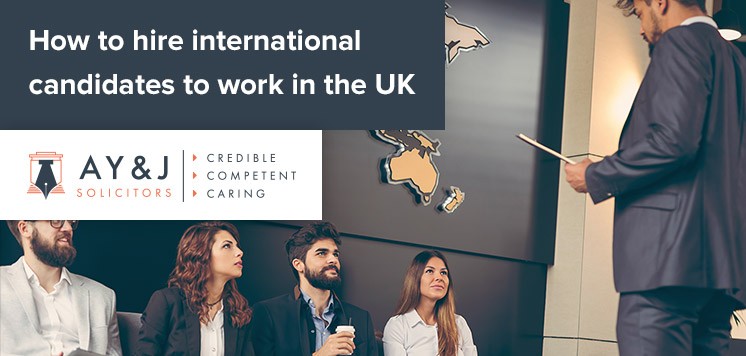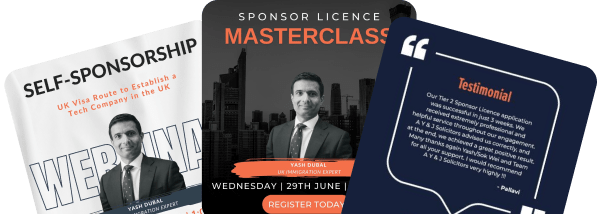Yash Dubal guides you through the immigration visa maze.
Not usually known for its glamour and pizazz, the immigration visa world has been the centre of attention in recent months, thanks to controversial changes.
According to the Government, the UK is open for business and British employers will soon enjoy unfettered access to the global skilled labour pool to fill unlimited vacancies. All this is thanks to new immigration rules which take effect from January 2021.
Currently, skilled and unskilled workers from the EU, European Economic Area (EEA), and Swiss nationals are free to work in the UK, while visas for skilled migrants outside Europe are capped.
When this new regime comes into force, EU workers will have to fulfil the same criteria as those from outside Europe, but the cap on numbers will be removed. Everyone is treated the same, so the argument goes.
Designed to attract the brightest and the best, the new policy favours skilled migrants, particularly in science, technology, engineering, and maths (STEM) roles.
In order to work here from 2021, those skilled migrants will have to broadly fulfil the same criteria as they do now. They will require a job from an approved sponsor, and they will have to meet a wage threshold.
Meanwhile, the rule changes effectively close the door to unskilled migrant workers, which is why there is concern from employers in hospitality, care and agriculture who fear labour shortages.
How can your business take advantage of the skilled and highly skilled international workforce now?
Broadly, there are three stages.
The current system enforced by the Home Office is called the Tier 2 work visa immigration route. As with the new system that comes into force in 2021, a business needs to be a licenced sponsoring employer. This means it has to be approved by the Home Office and fulfil a set of criteria.
Figures show that less than 30,000 of the UK’s employers are on the approved list. With 1.4m British businesses employing people in 2019, this means only a tiny percentage are geared up to take advantage of the global personnel market.
Keep records of checks, such as verifying foreign workers have the necessary skills, qualifications, and professional accreditations
Applications for a licence can be made through the Home Office website. However, the process is cumbersome, and many employers prefer to let legal experts prepare the application for them.
In order to get a sponsor licence, businesses must demonstrate they have:
- The necessary systems in place to comply with Sponsor Licence duties and responsibilities.
- No past convictions or breaches in immigration or any other area of law.
- No history of breaches of UK Visas and Immigration’s (UKVI) sponsorship duties.
Applicants for Tier 2 Sponsor Licence can expect a visit from a UK Visa and Immigration (UKVI) compliance officer to check there is a genuine need for a licence and to ensure correct systems are in place to manage sponsored workers. The officer also checks that the application details are accurate.
If successful, businesses are then obliged to maintain an ongoing compliance system which involves:
- Updating the Sponsorship Management System (SMS). This is an online system provided by UKVI.
- Keeping records of checks undertaken. These include verifying foreign workers have the necessary skills, qualifications, and professional accreditations.
- Conducting a Resident Labour Market Test (RLMT) to ensure no settled worker can fulfil the role.
- Ongoing monitoring of sponsored employees, including attendance and changes in contact details.
- Advising UKVI of any non-compliance by sponsored workers.
Sponsor licence holders are also required to appoint individuals to key roles. They need an authorising officer, a key contact and someone to undertake day-to-day management of the SMS.
Issuing a Certificate of Sponsorship to an international candidate
The second stage, before making a formal job offer, is to undertake Right to Work checks and run an RLMT (unless the position is exempt).
Once an offer of employment has been made, the sponsoring employer then needs to request a Certificate of Sponsorship (Cos) from the Home Office.
There are two categories of CoS; restricted and unrestricted. Restricted certificates have an annual cap and are allocated by UKVI every month.
Unrestricted certificates are not subject to an annual cap but can only be issued in limited circumstances, including if the employee’s salary will be over £159,600, or they will be working in a PhD role.
Meeting the points requirement
The final stage, once an employer has become a licenced sponsor is to find the right candidate. The Tier 2 route is a points-based system and overseas applicants must qualify for a minimum number of points to be successful.
A certificate of sponsorship from a licenced sponsor gets 30 points, an offer of a salary appropriate to the job gets 20 points and a further 10 points are awarded for having the required amount of maintenance funds (£945).
All three of these requirements need to be met for the applicant to be considered.
How will things change after 2021?
The new immigration system may make the process more straightforward, as the cap on skilled migrants will be suspended, RLMTs will no longer be required and the minimum salary threshold will be reduced from £30,000 to £25,600.
It remains to be seen how the new system will work in its entirety. Still, the softening of these eligibility rules may signal an intention by the Government to make skilled migration easier for employees and employers.
“Click here to read the article on the Training Journal”







